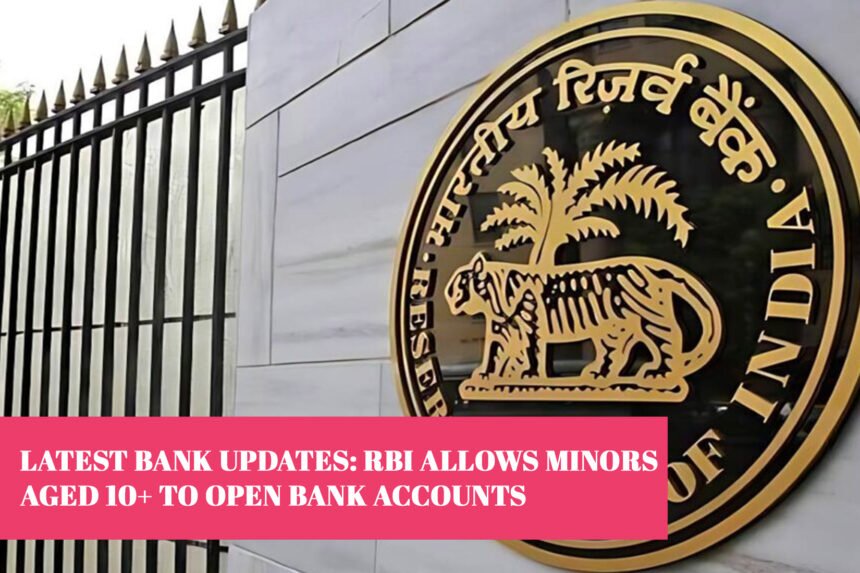As per the Latest Bank Update The Reserve Bank of India (RBI) has now allowed children aged 10 and above to open and manage their own savings or fixed deposit accounts at any bank in India, whether public or private. Previously, minors were only allowed to open bank accounts through their parents or legal guardians, with very limited control over their finances.
In a major move towards financial inclusion and empowering the younger generation, the Reserve Bank of India (RBI) has recently announced that minors who are 10 years or older can now open and manage their own bank accounts. This step is aimed at encouraging financial literacy from an early age and helping children become more responsible with money.
Under the new rule, minors still have the option to open and run bank accounts with the help of a natural or legal guardian. They can also open accounts with their mothers listed as the guardians. However, the big change is that children aged 10 and above can now independently manage these accounts, provided they meet certain terms and conditions laid down by the banks.
Banks will determine the specific limits and guidelines for these accounts based on their risk management policies. These terms might include restrictions on the maximum deposit amount, withdrawal limits, or what types of banking facilities can be used. All such terms must be clearly explained to the minor account holder at the time of account opening.
When a child turns 18, they will need to update their account details and provide a new signature so they can keep using their bank account as an adult. This ensures that the transition from a minor to an adult account holder is smooth and properly documented.
In addition to simply opening and managing accounts, banks can also choose to offer additional services to minor account holders. These may include options like internet banking, ATM or debit cards, and even the ability to get a cheque book. However, banks have the freedom to decide which services to provide based on their internal policies, product suitability, and customer profile.
It’s also important to note that all accounts operated by minors must always maintain a credit balance. Overdrawing or spending more than what is available in the account is not allowed. This safeguard is intended to teach minors the importance of financial discipline and prevent the misuse of banking facilities.
According to the RBI, banks must carefully check and verify all details when opening accounts for minors. This includes verifying identity, address, and any other necessary documentation. Additionally, banks must perform ongoing due diligence to monitor the activity in these accounts and ensure that everything remains in compliance with their policies.
The RBI has instructed all banks to update their policies or create new ones that are in line with these revised guidelines. The deadline to complete this update is July 1, 2025. Until then, banks have the time to modify their procedures, train their staff, and make the necessary technological or operational changes.
This initiative by the RBI is seen as a forward-thinking move that aligns with the larger vision of promoting financial awareness and independence among young individuals. With proper support and guidance from their families and financial institutions, minors can now start their journey towards financial responsibility early in life.
Parents and guardians are encouraged to discuss these new opportunities with their children and help them understand the importance of saving, budgeting, and making informed financial decisions. It is also a chance for schools and educational institutions to integrate financial education into their curricula.
In conclusion, by allowing minors to open and manage their bank accounts, the RBI is opening the doors to a future where young Indians are better prepared to handle money and make smart financial choices. This is an important step in helping young people become more aware of money and learn how to handle it responsibly.
ALSO READ – RBI Cuts Interest Rate to 6% to Boost Economic Growth










